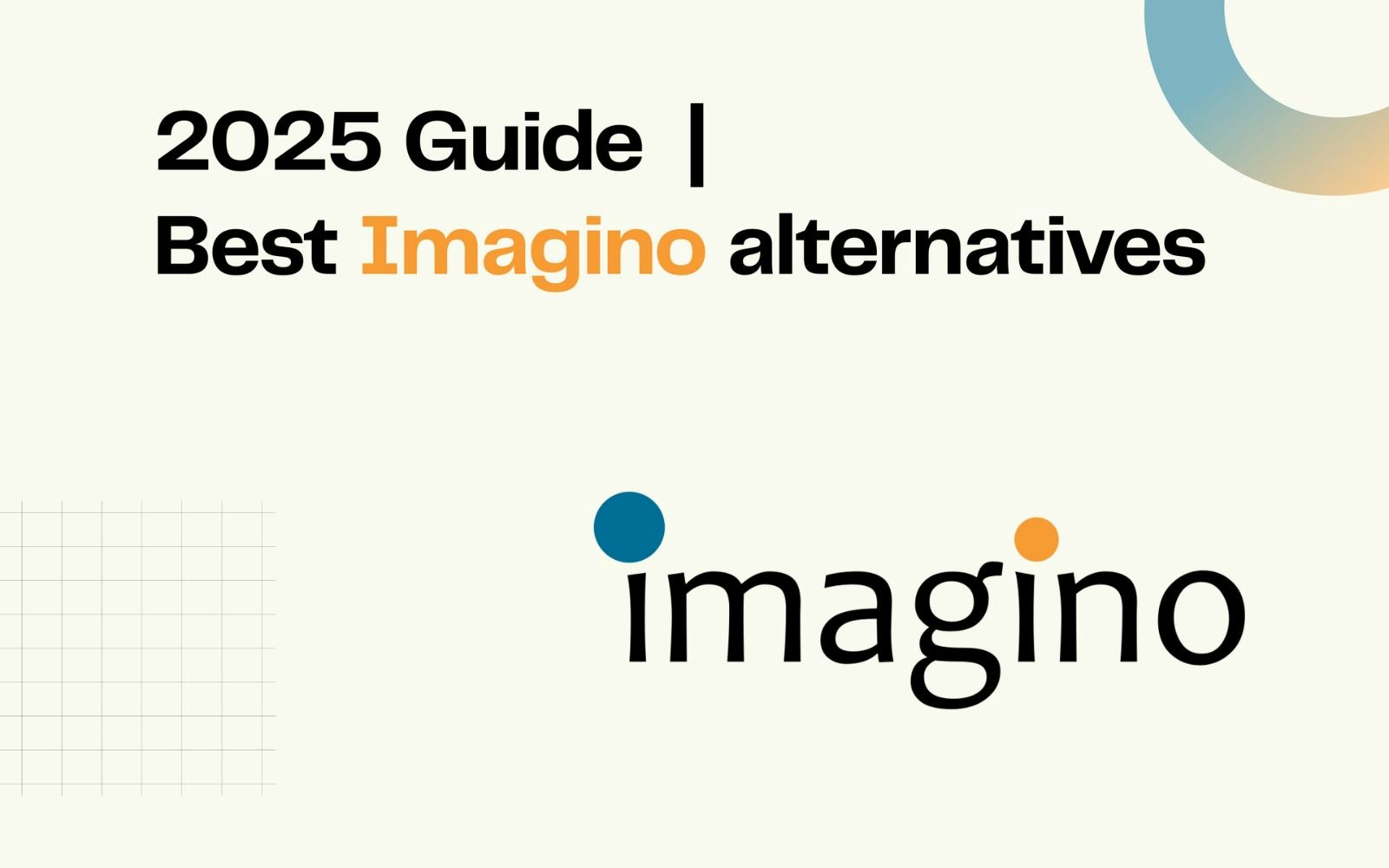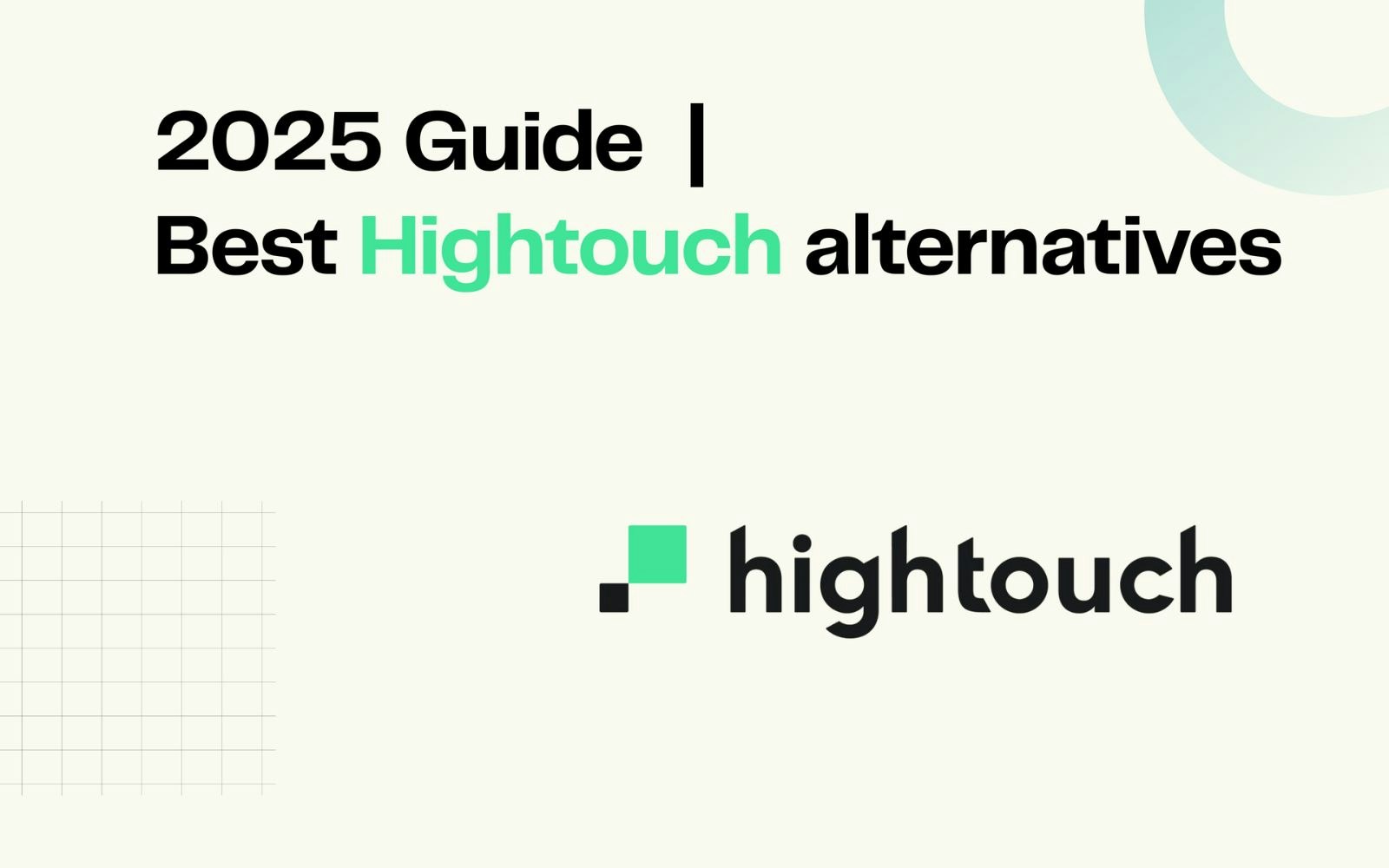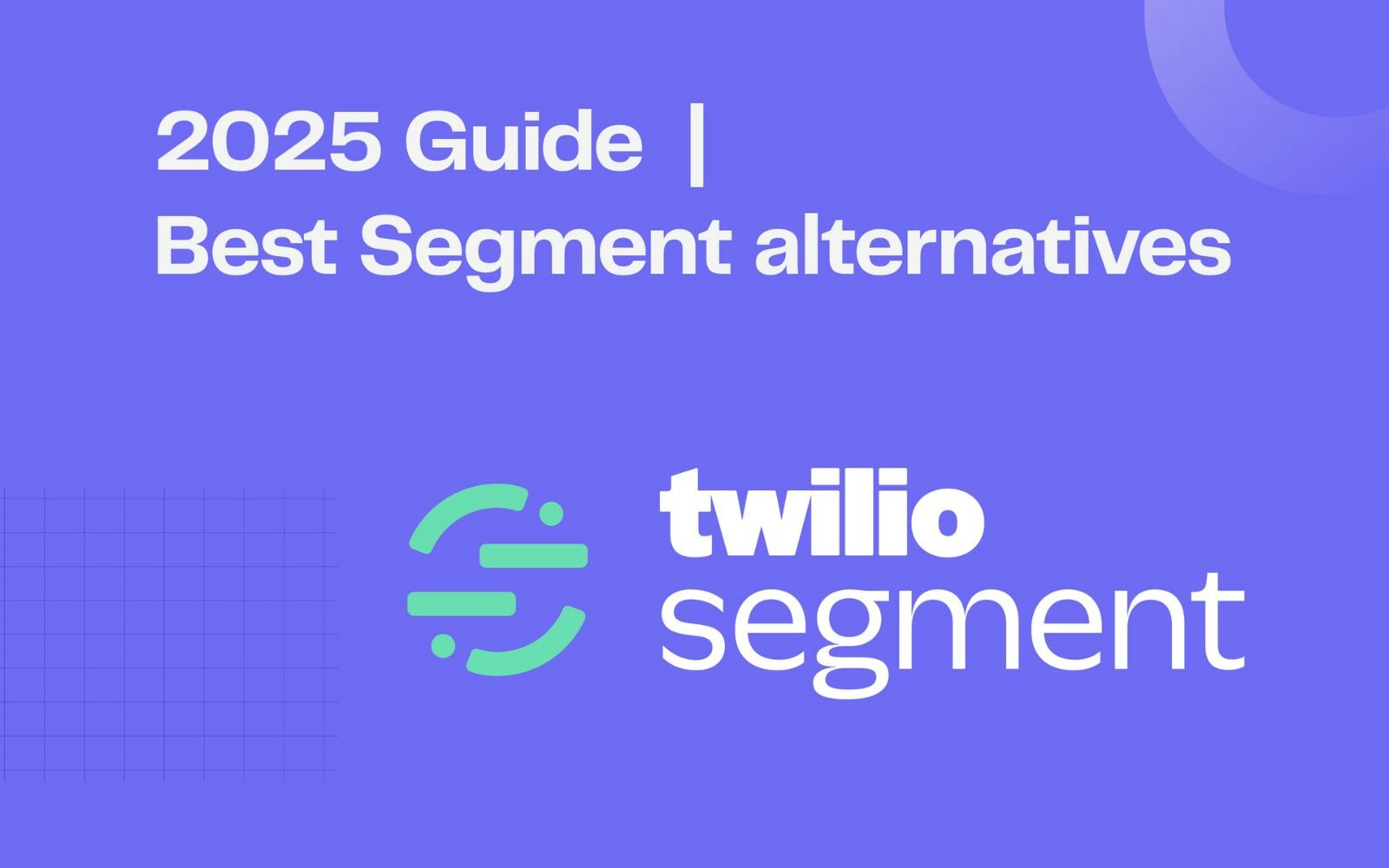Brands have to respond to increasing demands for personalisation and efficiency. According to McKinsey*, successful companies generate up to 40% more revenue than their competitors thanks to personalised strategies.
To meet this challenge, Customer Data Platforms (CDPs) are the key to better understanding and engaging customers. Imagino, a well-known French supplier, offers a platform that centralises data and orchestrates personalised marketing campaigns across all channels.
Find out how Imagino meets the challenges of personalisation and customer data management. We'll also show you the best alternatives, so you can choose the solution best suited to your objectives.
Key facts:
Imagino is a French platform for unifying and activating customer data.
It offers specific functionalities compared with other traditional CDPs.
Composable CDPs offer a modern, flexible alternative that adapts to your technical and business needs.
Cost, flexibility, performance: identify the right criteria to choose the solution that's right for your business.
🔎 Explore the features of Imagino and its alternatives. Find practical advice on choosing the ideal solution for your needs. 💡
What is Imagino?
A brief history of Imagino
Imagino is a Customer Data Platform launched in 2018 that enables businesses to leverage their customer data. It combines data centralisation, enrichment and activation functions.
The platform is aimed in particular at marketing teams looking to personalise and improve the effectiveness of their campaigns. Its customers are mainly in the retail, ready-to-wear and hotel sectors.
Initially positioned as a traditional CDP, Imagino is now moving towards a hybrid model such as Simon Data. Depending on the case, the data is stored either with the publisher or in your data warehouse, if you have chosen Snowflake.
👉🏼 To understand the differences between traditional CDP and composable CDP, take a look at our one-pager!
👇
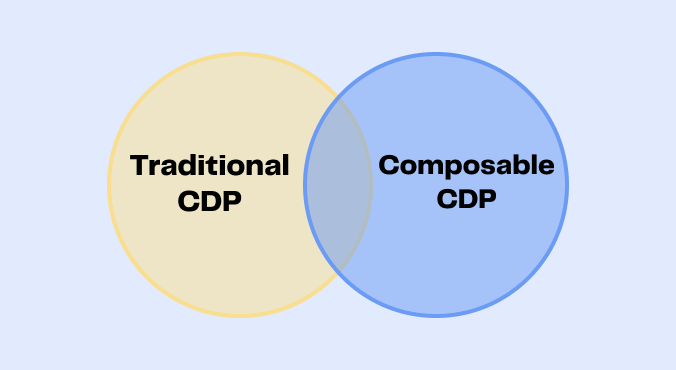
Traditional CDPs vs. Composable CDPs
How does Imagino work?
Imagino is a web-based solution. It consists of two main products:
Imagino CDP: a platform designed to centralise, unify and activate customer data.
Imagino Campaign: a tool dedicated to orchestrating marketing automation campaigns.
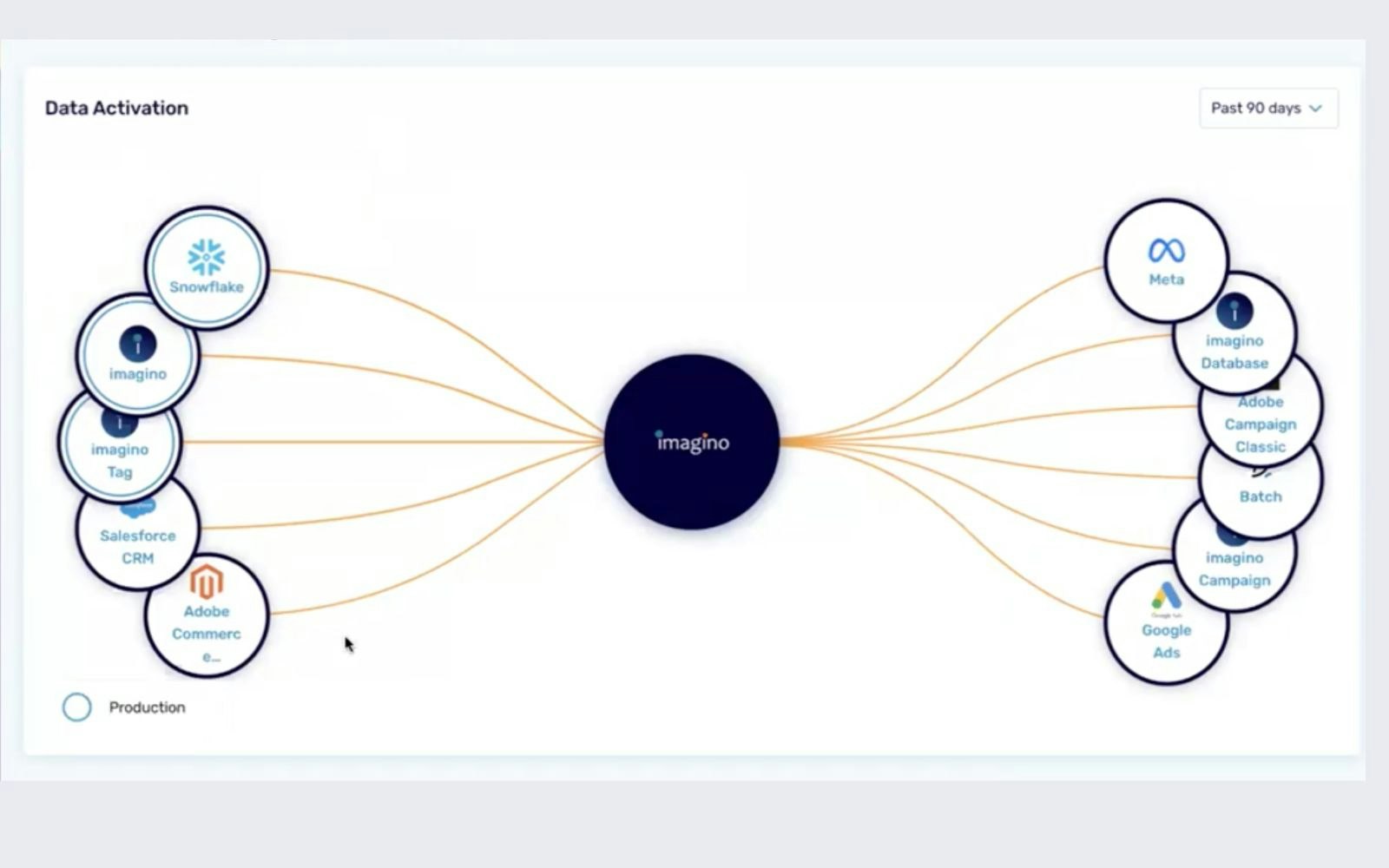
Source: Imagino
The CDP section collects dispersed data from various sources (CRM, websites or databases). It builds a unified customer view by aggregating information such as purchase history, customer service interactions and digital behaviour.
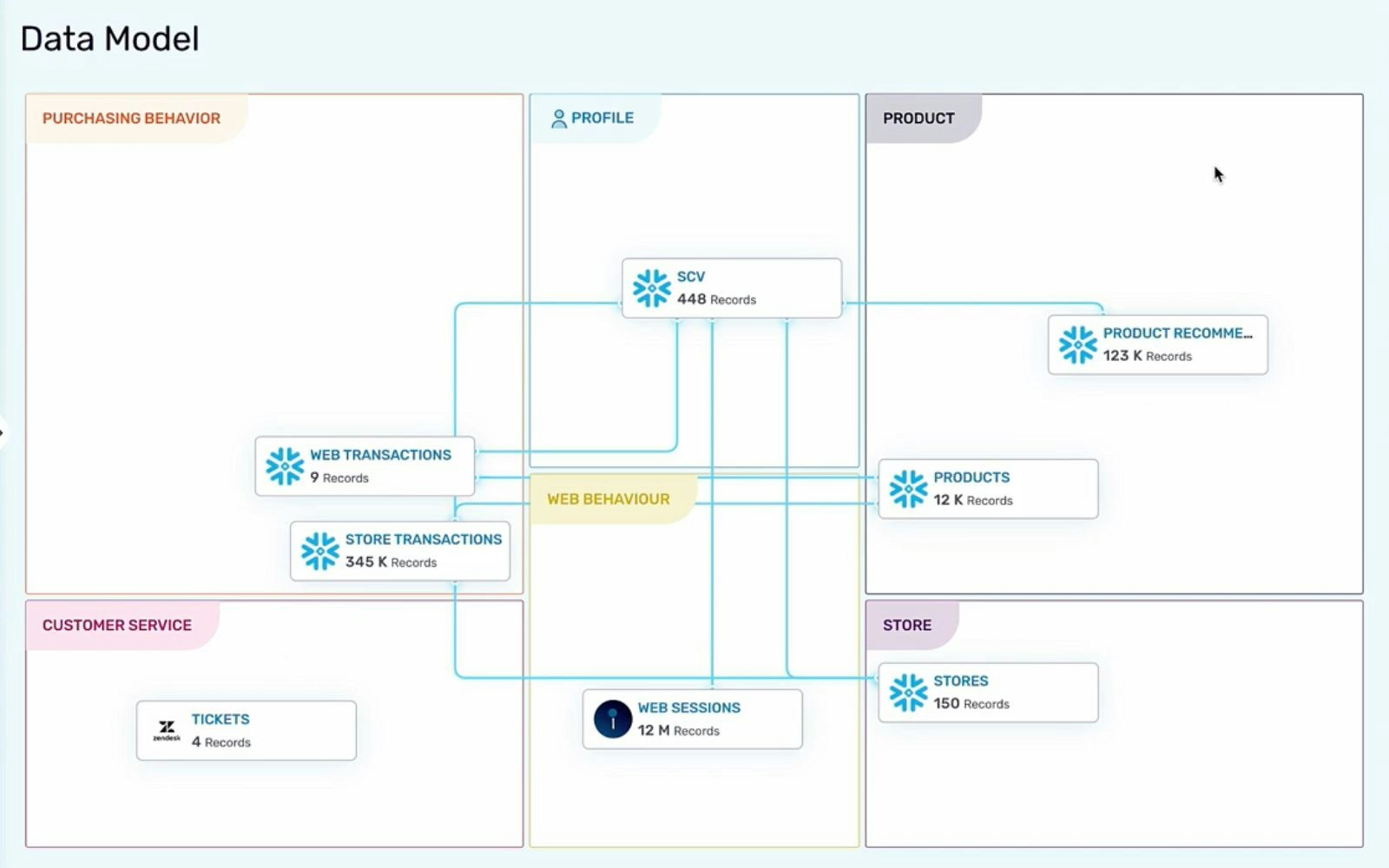
Data Model (source: Imagino)
The main objective is then to transform this data into concrete actions.
Imagino Campaign lets you create marketing workflows right from the user interface.
Marketing teams can define audiences, and activate campaigns across different channels: email, SMS, etc. The scenario builder uses conditional triggers based on customer actions.
Common use cases include relaunching abandoned shopping baskets and promoting personalised promotions. To date, some fifty connectors are available.
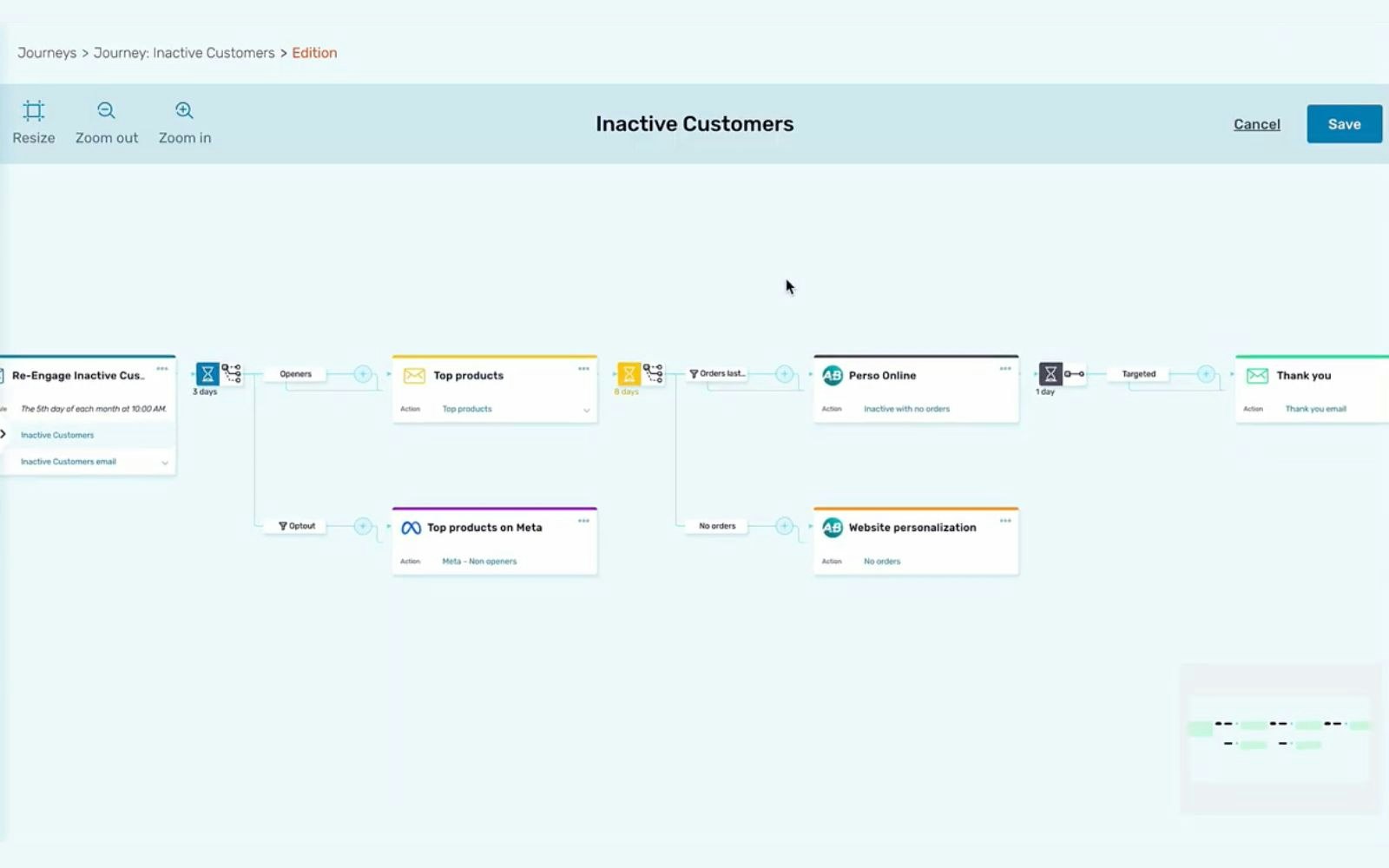
Imagino Campaign (source: Imagino)
Alternatives to Imagino
There are other solutions on the market that meet similar needs, but offer different approaches. Among them, Composable CDP is a modern, flexible alternative.
Alternative 1: Composable CDPs
A composable CDP is based on a modular architecture. It is based on the company's existing data storage system, such as Snowflake or BigQuery.
This approach offers unrivalled flexibility, as there is no need to duplicate data in a proprietary environment.
Composable CDPs meet several key objectives:
Flexibility and rapid implementation: deploy your first use cases quickly, without any technical knowledge. By comparison, it takes around 2 months to implement a technology like Imagino.
Advanced personalisation: a composable CDP adapts interactions to customer expectations using precise segmentation models.
Security: all the data remains in your architecture, with no duplication because the composable CDP is based on the existing data stack.
Cost: selection of the necessary building blocks using a ‘best of breed’ approach, and reduced overall cost.
DinMo's competitive advantages
DinMo is a flexible and effective composable CDP that stands out for its ‘marketing first’ approach:
Rapid deployment: DinMo adapts to existing infrastructures in record time. Test our solution for 30 days, and trigger your first use cases within a day.
No-code integration: Marketing and CRM teams create audiences and activations without going through IT.
Compatibility with data infrastructures: DinMo integrates seamlessly with data warehouses such as Snowflake, Google BigQuery and Amazon Redshift. No duplication and real-time synchronisation.
Compliance and governance: Compliance with regulations such as the GDPR and total control over your data.
Personalisation and AI: DinMo offers predictive personalisation powered by machine learning. Anticipate customer needs and optimise your campaigns accordingly.
Use case: Why choose DinMo?
👉🏼 If you want to learn more about DinMo, download our comparison with Imagino and feel free to contact us!
👇
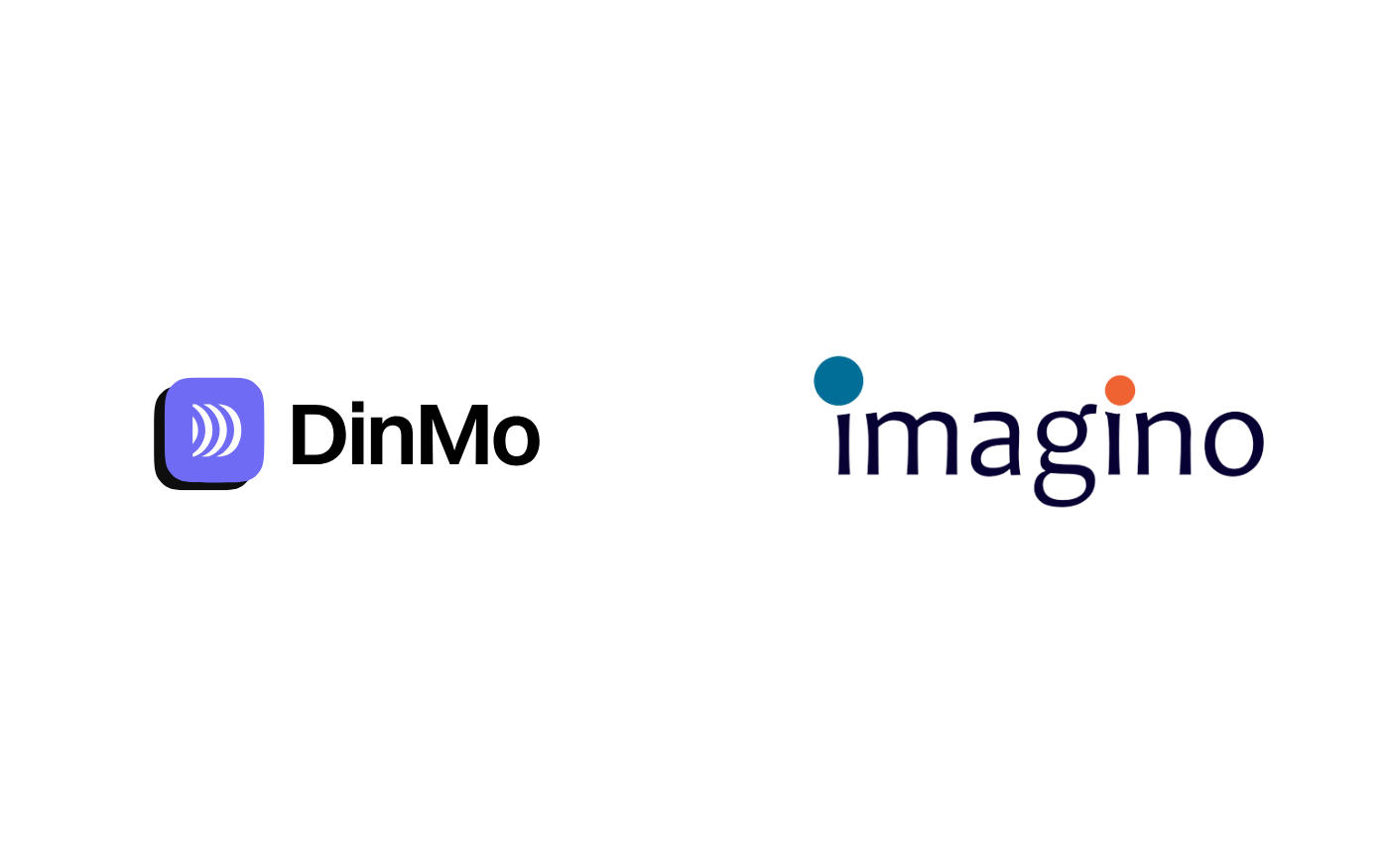
Key differences between Imagino and DinMo
Alternative 2: Traditional CDPs
There are several traditional CDP solutions on the market. These platforms meet similar needs in terms of centralising, unifying and activating customer data.
However, they adopt different approaches in terms of architecture, functionality and use cases.
Here is an overview of the main players:
mParticle
mParticle is a platform initially known for collecting mobile events. Its CDP is aimed primarily at large enterprises. It offers key functionalities such as data collection, storage, segment creation and activation. It offers integrations with various marketing tools, and offers predictive attributes.
Benefits:
Management of data flows in real time.
Compatibility with complex environments requiring continuous synchronisation.
Limitations:
Can be complex to configure without a dedicated technical team.
Less suitable for organisations looking for a quick, intuitive learning curve.
Tealium
Tealium is a solution focused on tag management and the unification of customer data. Its CDP, Tealium AudienceStream, helps companies create enriched customer profiles for personalised campaigns.
Benefits:
Solid expertise in tag management and data collection.
Strong focus on data security.
Limitations:
Often requires skilled in-house resources to maximise its potential.
Costs can be high for small or growing businesses.oissance.
Although effective in their respective fields, integrated CDPs can lack the flexibility to adapt to specific business needs. Some solutions are technically demanding, which can slow down their adoption.
Alternative 3: Infrastructure solutions
Infrastructure solutions offer a different approach. They focus more on large-scale data management and processing. These platforms are particularly suited to companies with strong technical teams.
Treasure Data
Created in 2011, Treasure Data was originally a Big Data platform. It has evolved towards CDP functionalities to meet the needs of marketing teams.
Benefits:
Strong compatibility with Big Data environments.
Real-time data analysis for instant marketing activations.
Limitations:
Requires a dedicated technical team for configuration and day-to-day management.
Less intuitive for marketing teams without technical expertise.
RudderStack
RudderStack is an open-source platform for processing data flows in real time. It enables data to be collected, transformed and routed to various marketing or analytical tools.
Advantages :
Open source model, enabling extensive customisation.
Suitable for companies with developers to configure and maintain data pipelines.
Limitations:
Users have to manage hosting and infrastructure themselves.
Less accessible for non-technical marketing teams.
These infrastructure solutions are aimed primarily at companies with specific technical needs and skilled in-house resources. While they offer great flexibility, they require advanced skills to be fully exploited.
Alternative 4: Extended CRM suites
For some companies, extended CRM suites can be an alternative to Customer Data Platforms.
Initially designed for customer relationship management, they have evolved to include certain functionalities. They are an alternative for companies with less advanced requirements in terms of data collection and activation.
Salesforce CDP
CRM leader Salesforce is now offering a CDP integrated into its ecosystem.
Benefits:
Native integration with all Salesforce tools.
Analytical features to identify customer behaviour and activate personalised campaigns.
Limitations:
Less flexible than a composable CDP for adapting to different technical stacks.
High cost, particularly for small and medium-sized businesses.
HubSpot CRM
HubSpot CRM is another popular alternative that has enhanced its functionality to include segmentation and marketing automation tools. Although not a CDP per se, HubSpot offers solutions for managing data in a simple, intuitive environment.
Benefits:
User-friendly, accessible interface for marketing teams.
Integrated segmentation and automation features.
Limitations:
Limited ability to process large volumes of data.
Less suitable for companies looking for advanced personalisation.
These CRM suites offer a first step towards personalisation, but remain less powerful than a dedicated CDP.
Companies today have many options for better managing and activating their customer data. Take the time to evaluate the solutions and choose the one that will maximise your return on investment.
Don't hesitate to contact us to find out how DinMo can transform your data marketing strategy. 🚀
*Source: McKinsey

















